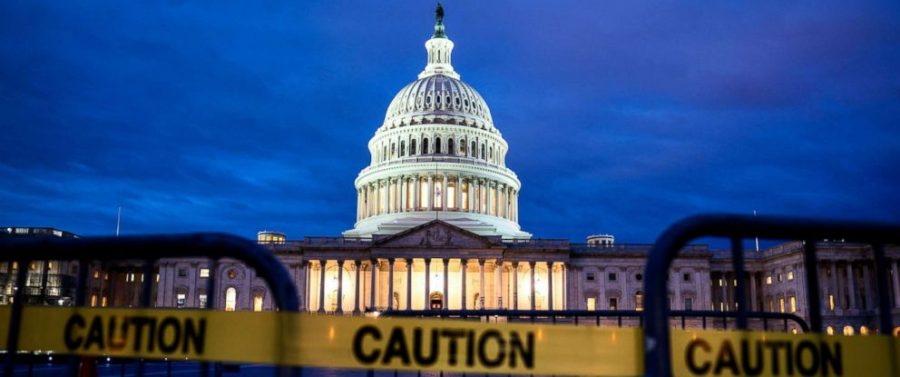End of Partial Government Shutdown
January 30, 2019
The longest government shutdown in United States history ended on Friday, January 25th , when President Trump signed a bill to fund the government for three weeks while border security disagreements are negotiated.
The government shutdown, which began on December 22nd, and lasted for 35 days, caused 380,000 government workers to stay home without pay and made around 50,000 people work even though they were not getting paid for doing their jobs. The shutdown cost the United States economy around $11 billion, and according to the Congressional Budget Office, even though most of the cost will be reversed once government workers begin their jobs again, $3 billion in economic activity is permanently lost. In a report made by the CBO, it states: “…the shutdown dampened economic activity mainly because of the loss of furloughed federal workers’ contribution to GDP, the delay in federal spending on goods and services, and the reduction in aggregate demand.” The CBO also expects that economic growth will drop from last year’s 3.1%, to 2.3%.
On Friday, Trump said that if he didn’t get a “fair deal” for the money he wants to build the wall, then he will either shut the government down again by February 15th, or use emergency powers to build the wall across the US-Mexico border. Mick Mulvaney, Trump’s acting chief of staff says: “At the end of the day, the president is going to secure the border one way or another.” However, there are some people who openly expressed their disagreements with the president’s actions, like Maine’s senator, Susan Collins. “I don’t know how any members of congress could think that a shutdown was a worthy pursuit. It never is.”
Because this shutdown was the longest in U.S history, lawmakers are suggesting a law to stop government shutdowns from happening. At a conference on Tuesday, Senate Majority Leader, Mitch McConnell said that he is going to open a bipartisan proposal in order to stop government shutdowns. Republican Senator Rob Portman of Ohio, and Democratic Senator Mark Warner of Virginia also want to propose legislations against government shutdowns.

